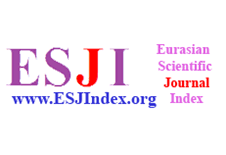STRATEGIES FOR VOCABULARY ENHANCEMENT IN EFL CONTEXTS: AN ANALYTICAL APPROACH
Axmedov Ikboljon
English language teacher, Kokand university, Kokand, Uzbekistan.
Keywords: Vocabulary Development, EFL, Language Learning Strategies, Digital Education Tools, Spaced Repetition, Media Immersion.
Abstract
This article systematically investigates the effectiveness of diverse pedagogical interventions designed to expand the vocabulary of learners in an English as a Foreign Language (EFL) setting. We assess various conventional and digital methodologies, their impact on vocabulary retention, and the subsequent enhancement in linguistic proficiency.
References
• Nation, I.S.P. (1990). Teaching and Learning Vocabulary. New York: Newbury House Publishers.
• Gu, Y. (2003). Vocabulary learning in a second language: Person, task, context and strategies. TESL-EJ, 7(2), 1-25.
• Ellis, N. (1994). Vocabulary acquisition: The implicit ins and outs of explicit cognitive mediation. In N. Ellis (Ed.), Implicit and Explicit Learning of Languages (pp. 211-282). San Diego, CA: Academic Press.
• Barcroft, J. (2004). Second language vocabulary acquisition: A lexical input processing approach. Foreign Language Annals, 37(2), 200-208.
• Axmedov Iqboljon Ilxomovich. (2024). AN ANALYTICAL APPROACH TO VOCABULARY ENHANCEMENT STRATEGIES IN EFL CONTEXTS. Kokand University Research Base, 61–66
• Ikboljon Ahmedov Ilxomovich. (2022). INTERCONNECTEDNESS OF SKILLS IN LANGUAGE LEARNING PROCESS. Web of Scientist: International Scientific Research Journal, 3(6), 1124–1127. https://doi.org/10.17605/OSF.IO/C6AYV
• Ikboljon Ahmedov Ilxomovich. (2022). PROBLEMS IN THE ACQUISITION OF ENGLISH NOUNS. Web of Scientist: International Scientific Research Journal, 3(6), 1128–1133. https://doi.org/10.17605/OSF.IO/3CE7U

















